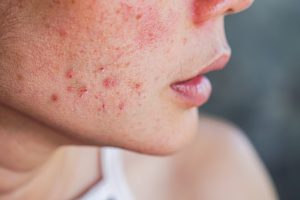 Exercise is generally good for your health; in fact, adults are recommended to get 150 minutes of moderate-intensity physical activity and two days of muscle-strengthening activity each week, according to the Centers for Disease Control and Prevention (CDC). However, it’s also important to keep in mind that there is always a risk of physical injury while exercising. Some of the most common exercise-related injuries include:
Exercise is generally good for your health; in fact, adults are recommended to get 150 minutes of moderate-intensity physical activity and two days of muscle-strengthening activity each week, according to the Centers for Disease Control and Prevention (CDC). However, it’s also important to keep in mind that there is always a risk of physical injury while exercising. Some of the most common exercise-related injuries include:
- Injuries to your shoulders, knees, elbows, legs, or ankles
- Bone fractures
- Dislocation
- Sprains
- Strains
- Tendinitis
- Bursitis
Several factors affect your risk of experiencing an injury while exercising. One of these is the exercise itself; certain exercises are more challenging than others and, as a result, may be more likely to cause an injury if you are not able to perform them properly. Another factor is frequency; a moderate amount of exercise is healthy, but working out excessively can put too much stress on your body. You may also be more likely to experience an injury if you have a medical condition or disability that makes an exercise more difficult to perform.
You can off-set these risk factors by taking certain steps to keep yourself safe. When you exercise, you should:
- Learning the correct form for each exercise you plan to do
- Warm up before performing an exercise (for example, by performing the exercise at a very light weight)
- Cool down after performing an exercise (you can repeat your warm-up exercise or do a different, slow-paced activity for this)
- Using safety equipment (talk to your doctor about what would be most appropriate for the exercises you plan to do)
- Talking to your doctor about the types of exercises you plan to perform to make sure that they are safe for you
- Varying your exercises throughout the week, focusing on different muscles each day you work out
It’s also important to recognize when you’re experiencing pain (as opposed to soreness) while working out. Sore muscles are normal, both during and after exercise, and you will need to push yourself to a reasonable extent. However, if you feel pain, stop exercising right away. Additionally, if you feel that you physically cannot finish an exercise, don’t try to force yourself to do so; this can lead to overuse injuries.
If you’ve injured yourself while exercising, you can receive a diagnosis and treatment from a physiatrist at Flushing Hospital Medical Center’s Department of Rehabilitation. To schedule an appointment, please call (718) 670-5515.
All content of this newsletter is intended for general information purposes only and is not intended or implied to be a substitute for professional medical advice, diagnosis or treatment. Please consult a medical professional before adopting any of the suggestions on this page. You must never disregard professional medical advice or delay seeking medical treatment based upon any content of this newsletter. PROMPTLY CONSULT YOUR PHYSICIAN OR CALL 911 IF YOU BELIEVE YOU HAVE A MEDICAL EMERGENCY.








